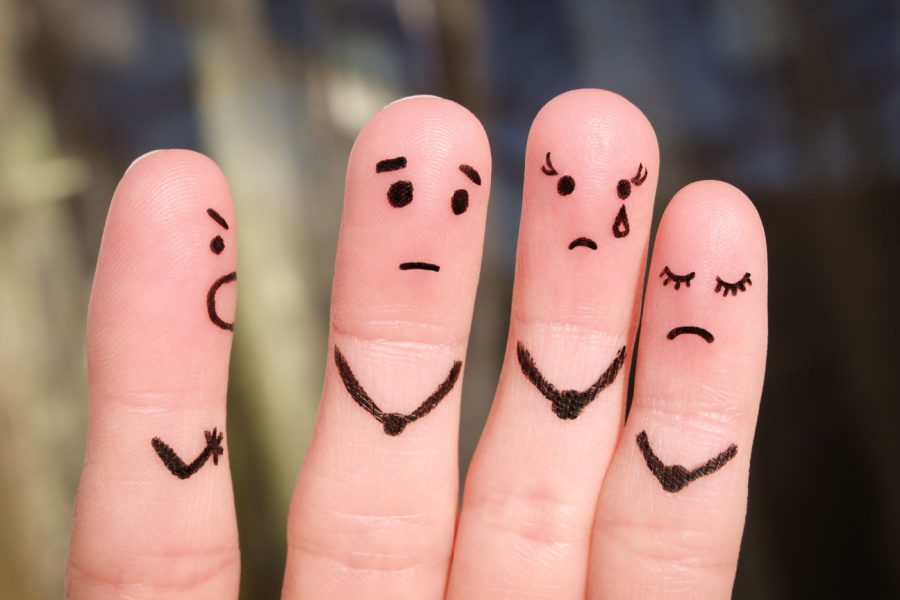What is alexithymia?
What is alexithymia
Alexithymia is a psychological condition by which an individual is unable to identify and describe their own emotions and recognise them in others. This means that the individual finds it difficult to understand and express how they are feeling which can influence their social and emotional development, as well as their connections with others. Someone with alexithymia still experiences and feels the emotions, however their understanding and responses to them are different.
Alexithymia is not commonly known about but estimates suggest that approximately 10% to 15% of the general population may exhibit some degree of alexithymic traits.
What are the signs of alexithymia?
The signs of alexithymia include:
- Finding it difficult to recognise emotions within the body
- Difficulty in naming their own emotions
- Struggles with emotional awareness
- Challenges to describe emotions
- Difficulty forming friendships
- Difficulty maintaining friendships
- Avoiding situations which are emotional or intimate
- Appearing apathetic about people, objects or emotions
- Low tolerance or management of stress
- Discomfort when experiencing strong emotions
- Higher levels of depression, verbal aggression, hostility and anger
- Less coherence in communication
- Bering confused about other people’s reactions, emotions or expressions of feelings
- Being emotional distant, which can be perceived as coldness
- Struggling to understand or connect with other people’s feelings and reactions
- A tendency to focus on events which are external to them rather than internal
- Recognising strong feelings of love but not being able to describe or express it
- A lack of empathy or responsiveness for others and their feelings
What causes alexithymia?
The exact cause of alexithymia is not known. However, it is thought to be a combination of genetic, environmental, and neurological factors. Some studies have shown that those with alexithymia have a difference in their brain structure, including the aspects related to emotional processing.
Some studies indicate that alexithyma is related to a deficit in interoception (our ability to interpret the physical signals from the body). One study identified that those with alexithymia also had difficult recognising other physical sensations such as fatigue, temperature, pain and hunger. This can present as forgetting to eat or not knowing when to stop eating, not feeling temperature like others, being unaware that they are stressed, being unsure how tight to hug another person, not being aware when they are unwell or in pain.
Who can have alexithymia?
Anyone can have alexithymia, but some people are more likely to have traits.
Some factors and conditions associated with a higher likelihood of alexithymia:
- Gender: Research has shown that alexithymia is more prevalent in males than in females. However, this gender difference may not be as pronounced in clinical populations.
- Neurodevelopmental and Psychiatric Disorders: Individuals with certain neurodevelopmental disorders, such as autism spectrum disorder (ASD), and certain psychiatric conditions, including post-traumatic stress disorder (PTSD), depression, and eating disorders, are more likely to exhibit alexithymic traits. Estimates suggest that approximately 50% to 85% of individuals with autism may experience some level of alexithymia depending on the criteria used to assess with.
- Trauma and Stress: People who have experienced traumatic events or ongoing chronic stress may develop alexithymia as a coping mechanism.
- Substance Abuse: Substance abuse and dependence can be associated with alexithymic traits.
- Age: Some research suggests that alexithymia may decrease with age, with older adults tending to be less alexithymic than younger individuals. However, this isn’t a universal rule.
- Cultural Factors: Cultural factors can influence the expression and recognition of emotions. Some cultures may be more accepting of emotional expression than others, which can impact the development of alexithymia.
- Genetics and Family History: There may be a genetic component to alexithymia, meaning it can run in families.
Support for alexithymia
Every individual will benefit from different support if they have alexithymia and there is not a cookie cutter approach to interventions. Instead, finding the pathway appropriate and effective to the individual is paramount. This can include support such as (list not exhaustive):
- Psychotherapy: Therapy with a qualified mental health professional, such as a psychologist or therapist, is often recommended. Cognitive-behavioral therapy (CBT), psychodynamic therapy, and emotion-focused therapy are among the therapeutic modalities that can be effective.
- Emotion-Focused Therapy (EFT): To help individuals become more aware of their emotions and learn how to express them effectively. EFT often involves exploring and processing emotions in a safe and structured manner.
- Mindfulness and Meditation: Practices like mindfulness meditation can help individuals become more attuned to their internal emotional states. Mindfulness exercises encourage non-judgmental awareness of thoughts and emotions.
- Journaling: Keeping a daily journal can be a helpful tool for individuals with alexithymia. Writing down thoughts, feelings, and experiences can aid in the identification and understanding of emotions over time.
- Psychoeducation: For instance, learning about emotions, their functions, and how they manifest in the body can be an essential component of treatment. Psychoeducation helps individuals gain insight into the nature of their emotional difficulties.
- Art and Creative Therapies: Some individuals find that creative therapies, such as art therapy, music therapy, or dance therapy, can provide alternative ways to access and express emotions.
- Social Skills Training: For those with alexithymia who struggle with interpersonal relationships, social skills training can help improve communication and empathy.
Want to learn more?
If you want to learn more about mental health, you can join our Level 4 training (here) or keep an eye out for our new courses coming soon (here).
© Dandelion Training and Development – All Rights Reserved
Further help
For more articles about mental health visit – ARTICLES
To learn more about child and adolescent mental health visit – COURSES
For resources to support child and adolescent mental health visit –RESOURCES


